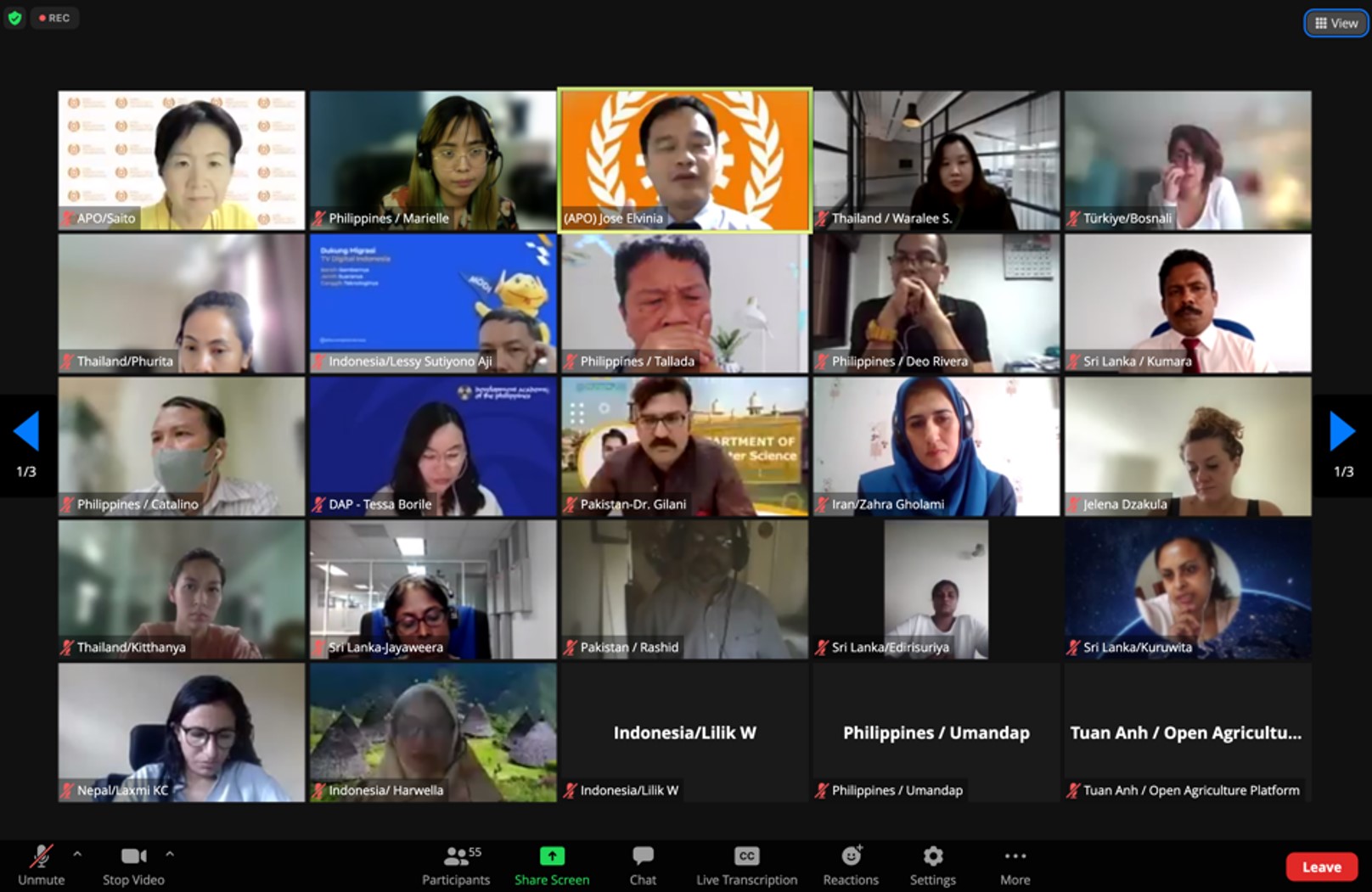
The Philippine Council for Agriculture, Aquatic and Natural Resources Research and Development of the Department of Science and Technology (DOST-PCAARRD) recognizes the importance of integrating digital technologies in creating a knowledge-intensive organization especially during the COVID-19 pandemic.
In this light, the Council participated in the Digital Multicountry Workshop on Digital Transformation for the Public Sector from July 13 to 15, 2022.
The workshop, implemented by the Asian Productivity Organization (APO) alongside the Development Academy of the Philippines (DAP), aimed at sharing and examining the imperatives for and advances in digital transformation (DX) of the public sector, particularly its adoption and strategic approaches for implementation.
Representatives from APO member agencies including the Philippines, Thailand, Indonesia, Pakistan, Iran, Sri Lanka, Nepal, and Turkey, among others participated in the workshop.
Experts on DX from Japan, Republic of Korea (ROK), United Kingdom (UK), and the Philippines, graced the workshop with presentations on their corresponding DX projects. The said experts were Dr. Toshio Obi of the Institute of Digital Government at Waseda University, Ms. Hyejeong Lim of the National Information Society Agency, Dr. Jelena Dzakula from the Department of Digital Humanities at King’s College and Dr. William Torres from Mapua University.
Ms. Marielle J. Pasuquin of the Management Information System Division (MISD) of DOST-PCAARRD participated in the workshop. According to Pasuquin, learning about DX and trends in information, communication, and technology (ICT) will help them in further developing technologies and systems for the Council’s needs. Currently, MISD provides information management systems for research and development as well as administrative matters.
The first day of workshop covered three topics: 1) Assessment of Current Digital Infrastructure, which discussed the use of ICT in improving the efficiency of public sector programs, and best practices; 2) Open Government Data Framework, which showcased the data governance frameworks used in ROK to ensure timely, reliable, and meaningful data services; and 3) Disruptive Technologies, which focused on emerging technologies that affect ethical, privacy, and fairness issues. During the second day, Ms. Lim discussed various policies necessary to strengthen a government’s digital services. ROK’s best practices were also covered. On the other hand, Dr. Obi presented a few DX policy frameworks used in the Japanese public sector.
The last day of the workshop highlighted Dr. Torres’ presentation on the advances and challenges in DX in the Philippines. He also gave examples of organizations that were able to successfully adopt DX to improve their productivity. The workshop was concluded by Dr. Dzakula’s lecture on the digital government transformations in the European Union (EU) over the last 20 years.
Aside from lectures, the participants also engaged in group discussions on topics like people-centric government services and business continuity plans (BCPs) during disasters within the DX framework model.
Through this workshop, participants and their organizations are expected to effectively assess the impact of DX in enhancing the quality of public services in an inclusive, equitable, and sustainable way. As a knowledge-generating organization, DOST-PCAARRD can readily apply the insights gained on new technological movements and best practices. Moreover, continuous learning and relearning of technological innovations that can help PCAARRD attain its goals will aid in streamlining its services for the public sector.
